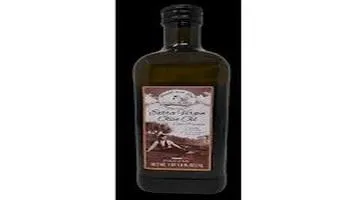Olive Oil: A Timeless Culinary Elixir
Olive oil is a versatile and widely cherished oil derived from the fruit of the olive tree, predominantly grown in the Mediterranean region. Renowned for its rich flavor and numerous health benefits, it plays a central role in Mediterranean cuisine. Olive oil is categorized based on its extraction process and acidity levels, with extra virgin olive oil being the highest quality due to its minimal processing and superior taste. It is packed with monounsaturated fats and antioxidants, which contribute to heart health, reduced inflammation, and potentially lower risks of chronic diseases. Beyond culinary uses, olive oil is also valued in skincare and cosmetics for its moisturizing properties. Its golden hue and aromatic profile make it a beloved staple in kitchens worldwide.

Olive oil, often referred to as "liquid gold," has been a cornerstone of Mediterranean cuisine for millennia. Its rich history, coupled with its unparalleled flavor and myriad health benefits, has made it a staple in kitchens worldwide. From the ancient groves of Greece and Italy to the sunlit fields of Spain and California, olive oil's journey from tree to table is a testament to its enduring allure and significance.
Historical and Cultural Significance
The story of olive oil dates back to ancient civilizations. The Greeks, Romans, and Egyptians not only consumed it but also revered it in religious ceremonies, used it for medicinal purposes, and even anointed their athletes with it. In many cultures, the olive tree itself is a symbol of peace, wisdom, and longevity. The reverence for olive oil is deeply embedded in the traditions and cuisines of these regions, making it more than just a cooking ingredient but a cultural icon.
Types of Olive Oil
Understanding olive oil begins with recognizing its various types, each with distinct characteristics and uses:
1. Extra Virgin Olive Oil (EVOO): This is the highest quality olive oil, extracted through cold pressing without using chemicals or heat. It retains the natural flavors and nutrients of the olives, resulting in a robust, fruity taste with a peppery finish. EVOO is perfect for drizzling over salads, dipping bread, or finishing dishes.
2. Virgin Olive Oil: Slightly lower in quality compared to EVOO, virgin olive oil is also made by cold pressing but may have minor sensory defects. It's suitable for cooking where a strong olive flavor is desired.
3. Pure Olive Oil: Often a blend of virgin and refined olive oil, pure olive oil has a more neutral flavor and a higher smoke point, making it versatile for various cooking methods, including frying and sautéing.
4. Light Olive Oil: Despite its name, "light" refers to the oil's flavor rather than its caloric content. It is highly refined, resulting in a light taste and color, suitable for baking and high-heat cooking.
Health Benefits
Olive oil is lauded for its numerous health benefits, many of which are attributed to its high content of monounsaturated fats and antioxidants. Regular consumption of olive oil is linked to:
- Heart Health: Olive oil is rich in monounsaturated fats, which can help reduce LDL cholesterol levels and increase HDL cholesterol. The presence of antioxidants, such as polyphenols, further supports cardiovascular health by reducing inflammation and oxidative stress.
- Anti-inflammatory Properties: The compound oleocanthal in olive oil has been shown to have anti-inflammatory effects similar to those of ibuprofen. This can be beneficial in reducing chronic inflammation, a contributing factor to many diseases.
- Cancer Prevention: Some studies suggest that the antioxidants and healthy fats in olive oil may help reduce the risk of certain cancers, including breast and colorectal cancer.
- Brain Health: Olive oil's high levels of monounsaturated fats and antioxidants are also believed to support cognitive function and may help prevent neurodegenerative diseases, such as Alzheimer's.
Culinary Uses
One of the most delightful aspects of olive oil is its versatility in the kitchen. Its complex flavor profile can enhance both simple and elaborate dishes. Here are a few ways to incorporate olive oil into your culinary repertoire:
- Salads and Dressings: A drizzle of high-quality EVOO can elevate a simple salad, adding depth and richness. Combine it with balsamic vinegar, lemon juice, or herbs for a quick, flavorful dressing.
- Cooking: While EVOO is best reserved for low to medium-heat cooking to preserve its delicate flavors, pure or light olive oil is ideal for sautéing, roasting, and even frying due to its higher smoke point.
- Baking: Olive oil can be a healthier substitute for butter or vegetable oil in baking. It adds moisture and a subtle, fruity flavor to cakes, muffins, and bread.
- Dips and Spreads: Combine olive oil with ingredients like garlic, herbs, and spices to create delicious dips and spreads. A simple mixture of olive oil, garlic, and crushed red pepper can transform a loaf of bread into an irresistible appetizer.
Storage and Quality
To ensure you get the most out of your olive oil, proper storage is crucial. Olive oil should be stored in a cool, dark place, away from heat and light, which can cause it to oxidize and lose its flavor. Use it within six months to a year of opening to enjoy its freshest taste.
When purchasing olive oil, look for bottles labeled "extra virgin" and "cold-pressed." Dark glass bottles or tins are preferable as they protect the oil from light. Also, check for a harvest date to ensure freshness.
Conclusion
Olive oil is much more than a cooking ingredient; it is a symbol of cultural heritage, a testament to ancient agricultural practices, and a beacon of health and culinary excellence. Its rich, complex flavor and numerous health benefits make it an invaluable addition to any kitchen. Whether you're drizzling it over a fresh salad, using it to sauté vegetables, or baking a moist cake, olive oil's versatility and quality shine through. Embrace this timeless elixir and let it elevate your culinary creations to new heights.
Related Posts

Combination Square The Essential Tool for Precision and Versatility

A Detailed Review of the PetFusion Interactive Treat Puzzle: A Fun and Engaging Solution for Pet Stimulation

Bosch Clothes Dryer A Blend of Efficiency and Advanced Technology



